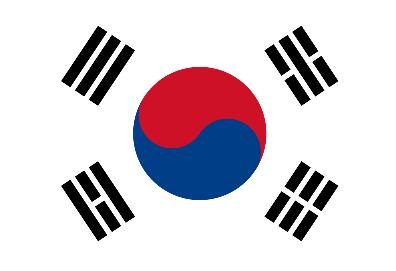Democratic Rights: Why We Should Care About the Dissolution of the UPP in South Korea

Earlier this month, the Unified Progressive Party (the UPP), the third largest political party in South Korea, was dissolved by the Korean Constitutional Court as constituting a “threat to the democratic order”.
The UPP advocated for peaceful reconciliation with the North and immediate dialogue. It was accused of acting as a fifth column in South Korea.
The Guardian, ABC News and the Los Angeles Times have some good articles about the dissolution.
In November of this year, I flew to South Korea to provide assistance to the UPP in its efforts to avoid dissolution. I submitted papers to the Korean constitutional court and made the case that a free and open society should encourage political discourse. Nothing that I had seen substantiated any claims that the UPP was “in league with the enemy” or was conspiring against the South Korean government. Indeed, the UPP had representation in Parliament, which more than suggested that it was capable of achieving its political objectives through lawful, democratic means.
While in Seoul, I met with Representative Lee Seok-Ki of the UPP, who, even though a member of Parliament, had been jailed for 9 years for giving an anti-US speech, claiming that the US was the real problem in South Korean politics. Lee was convicted of (i) a law that makes it criminal to say things that could lead to violence in the future, and (ii) violating South Korea’s “national security law.”
At the time, his imprisonment seemed unjust. Now, after the dissolution, and within the context of media reports that other former members of the UPP are being investigated for treason, it is clear that Representative Lee is a political prisoner who should not have been jailed in the first place.
Some have accused South Korea’s current President, Park Geun-hye, a member of the conservative Saenuri Party and the daughter of the former dictator of South Korea, of harboring a personal vendetta against the UPP.
As of today, Amnesty International and the Carter Center have issued statements decrying the Korean government’s actions against the UPP.
Dissolution of a political party under international law requires a grave threat to the democratic functioning of a society
In the United States, it is almost impossible to dissolve a political party, and to my knowledge I cannot recall when a political party has ever been subject to a wholesale ban. Certainly, it is established history that the CIA and the FBI have engaged in “dirty tricks” campaigns against political parties, but they have had to do so because political speech is subject to strict protections in the US.
Why care about a small party in South Korea? I think the point is that political speech, once suppressed, paves the way to greater authoritarian control over civil discourse. Holding certain political views becomes a “thought crime.” Governments that have the ability to police political thoughts soon seek the power to punish such thoughts without oversight.
The dissolution of the UPP, from that point of view, becomes another attack on the basic order of a robust democratic dialogue.
Viewed in isolation, it may seem unimportant. But, considering that South Korea was itself ruled by authoritarian presidents for many decades, and considering also the growing conformity of political dialogue in many Western countries, the dissolution strikes me as another assault on democratic values supposedly enshrined in constitutions and treaties all over the world, yet which are increasingly under attack by powerful governments.
Inder Comar in the demilitarized zone


